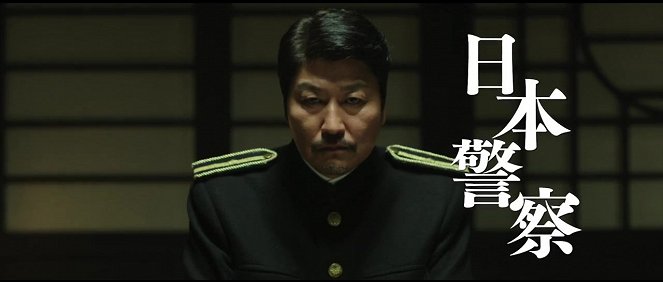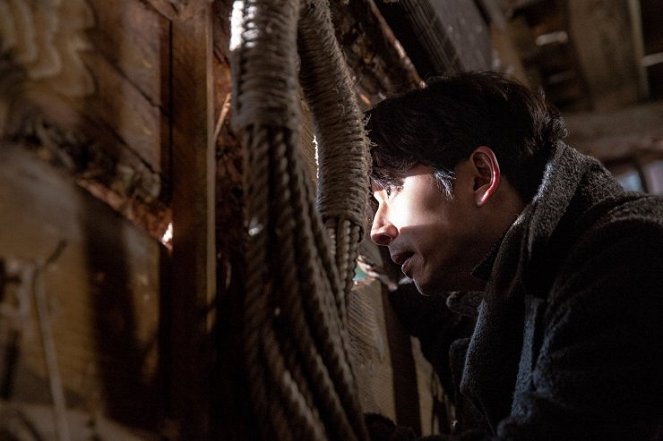Reżyseria:
Jee-woon KimZdjęcia:
Ji-yong KimMuzyka:
MowgObsada:
Kang-ho Song, Yoo Gong, Ji-min Han, Shingo Tsurumi, Tae-goo Eom, Seong-rok Shin, Sung-tae Heo, Dong-yeong Kim, Joon Go, Yeong-ju Seo, Hwan Lee, Yu-hwa Choi (więcej)Opisy(1)
Lata 20-te XX wieku, Korea znajduje się pod japońską okupacją. Lee Jung-chool, były członek koreańskiego ruchu oporu, a teraz oficer japońskiej policji, otrzymuje specjalną misję zinfiltrowania ruchu walczącego o niepodległość Korei. Policjant poznaje się z Kim Woo-Jinem, handlarzem dziełami sztuki, który w rzeczywistości jest lokalnym przywódcą ruchu oporu. Choć obaj mężczyźni znają swoją prawdziwą tożsamość i intencje, podejmują ryzykowną grę. Gdy członkowie ruch oporu wyruszają do Szanghaju, żeby zdobyć materiały wybuchowe, które mają zamiar podłożyć w siedzibie japońskiego rządu w Seulu, Lee Jung-Chool i japoński oficer Hashimoto wyruszają za nimi w pościg. Nagle okazuje się, że informację o planowanych działaniach wyciekają z obu stron, ale nikt nie ma pojęcia kim są informatorzy. (Mayfly)
(więcej)Materiały wideo (2)
Recenzje (4)
The best Korean director is again excellent and again different. Kim Jee-woon is truly a class act, as he is one of the few who can handle multiple genres at once, his I Saw the Devil is still one of the best thrillers from Korea, The Good, The Bad, The Weird is still the best western from Korea, and his actioner Bittersweet Life has a spot in the top rankings. His new release The Age of Shadows is unfortunately not entertaining enough for me to happily spit it out (I suffered slightly for the first hour), but once the action shifts to the train, the attention span rises considerably and here I began to thoroughly enjoy the master at action, perfectly portraying the calm before the storm atmosphere, culminating in a Tarantino-style shootout and the ensuing non-stop action until the finale, which was pleasingly brutal and aesthetically classy. Of the stars, Song Kang-ho is classically the best, Gong Yoo and in a smaller role, Lee Byeong-heon, who for the record played the lead in each of the director's three aforementioned gems, were also good. 75%
()
The mastery of directing, or how to turn a nationalist spy drama into a spectacular for viewers using solely formal processes of film language.
()
An example of what a Korean historical film looks like, trying to deal with a situation that was present here, similar to when Eastern Europe was under Soviet domination. In the case of Korea, it was Japan, but the situation is very similar. It's uncomfortably scary how history repeats itself in different places.
()
In the opening hour and a half, a lengthy pell-mell like a commedia dell'arte and a spy drama, where each of the many characters trying to play everyone. In order to turn it from a (graded) train journey to the final hour (abruptly, not gradually) into a serious and properly dense fateful resistance movie with everything, which tries (and with closing both eyes actually well) to be the "South Korean Black Book". From technical point of view, the camera and music the movie is simply top. In this regard, hardly anything else can be expected from director with Jee-woon Kim's reputation. The highlight of the "Tarantino scene" of settling account on the train and the party at the police embassy (which, of course, makes the ending of the Inglorious Bastards almost impossible to forget). As a result, an unnecessarily long movie, which was to some extent clearly spoiled by the South Korean trademark's mixing of incompatible genres. And as much as it contains many scenes that cannot be forgotten, the movie that centers about them, on the contrary, will be forgotten faster than would be appropriate.
()



Reklama